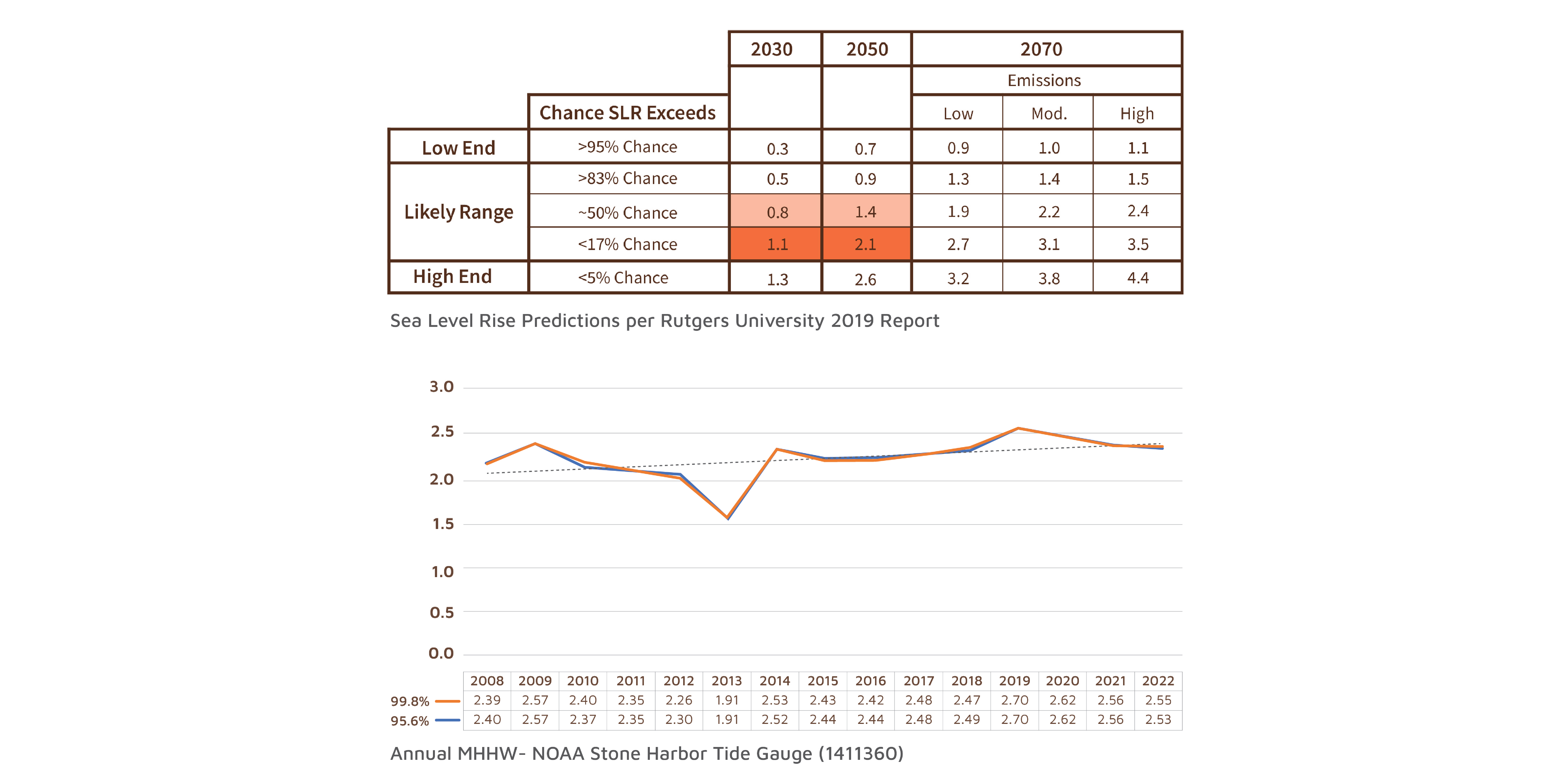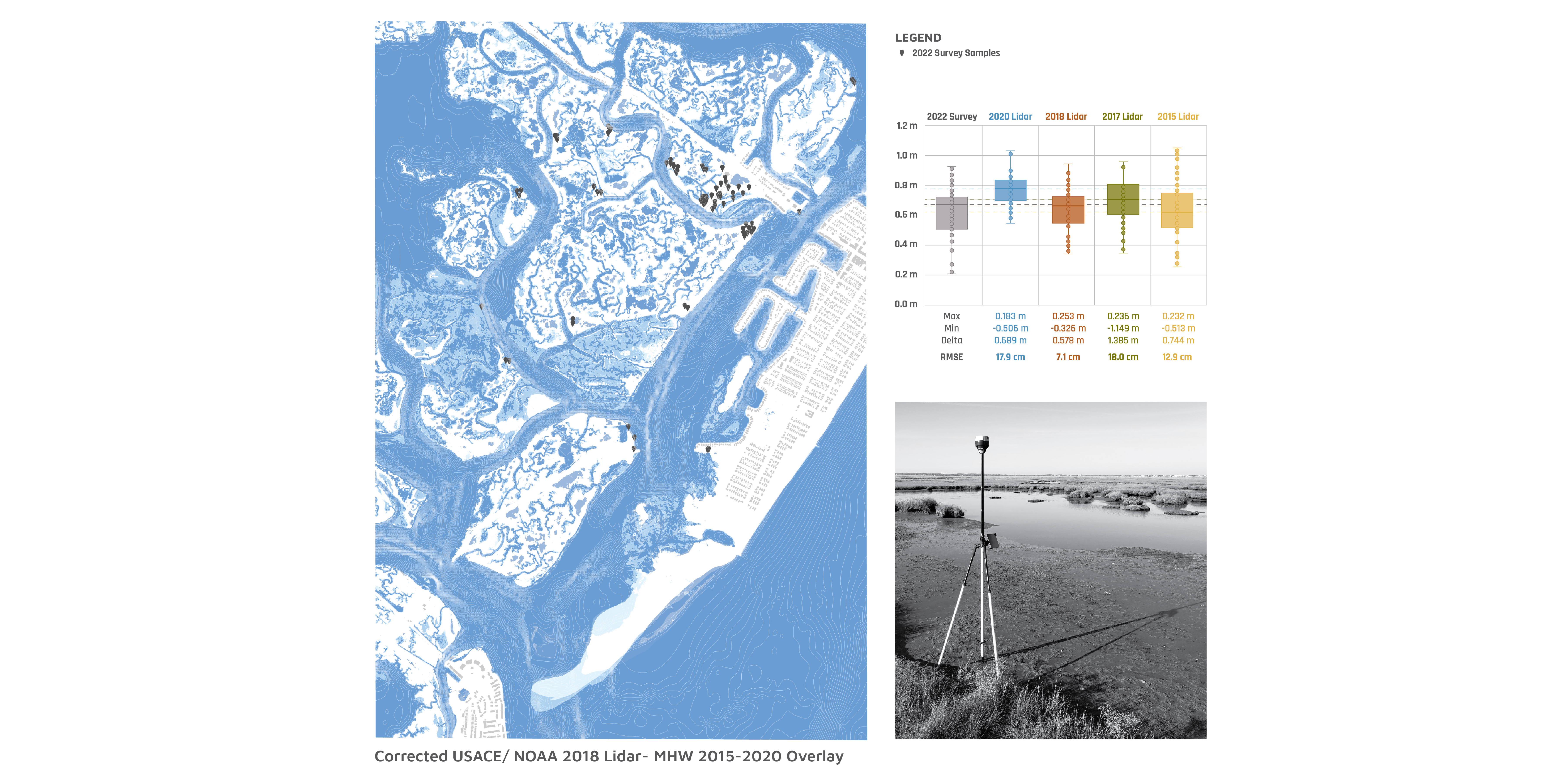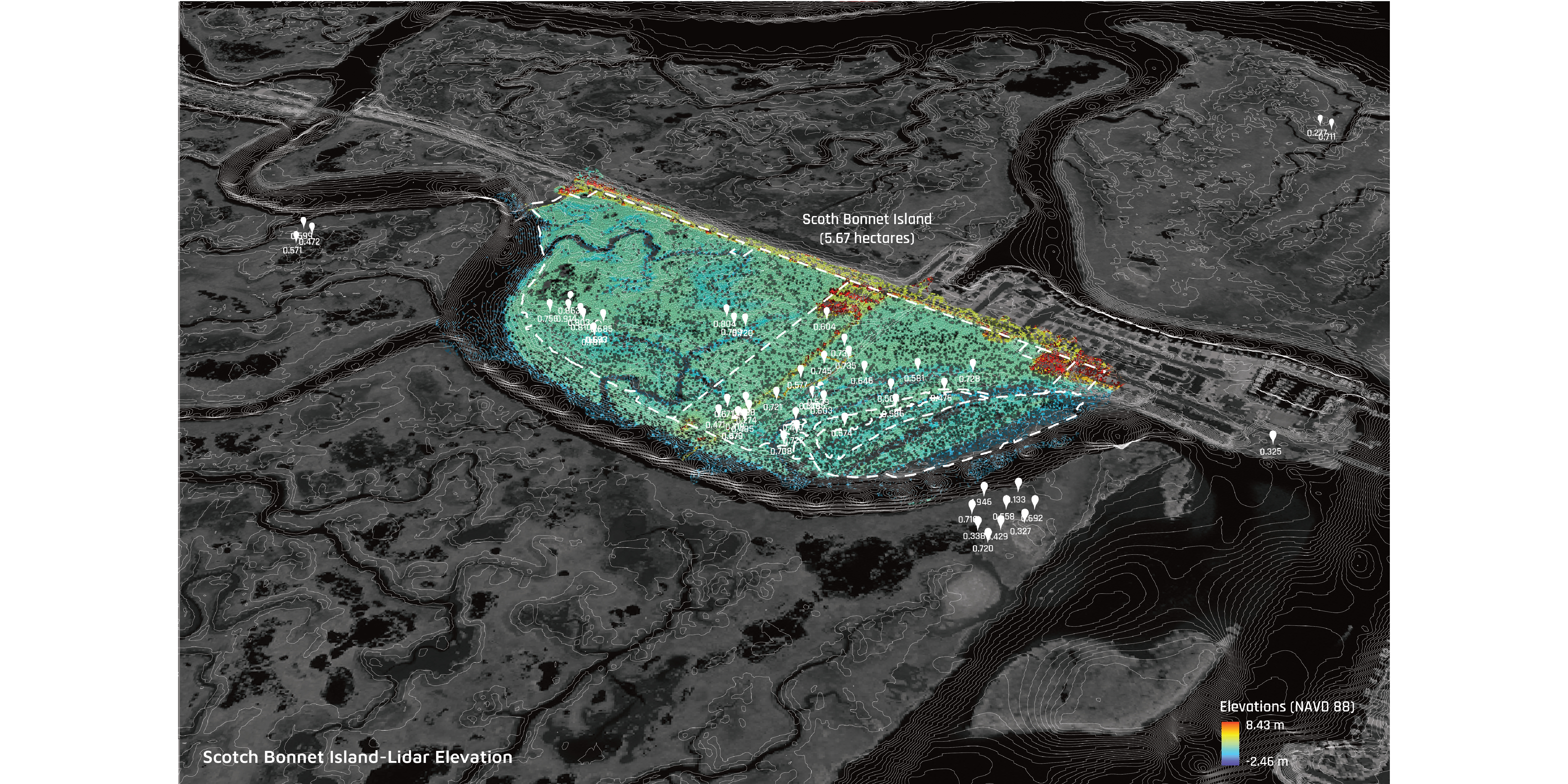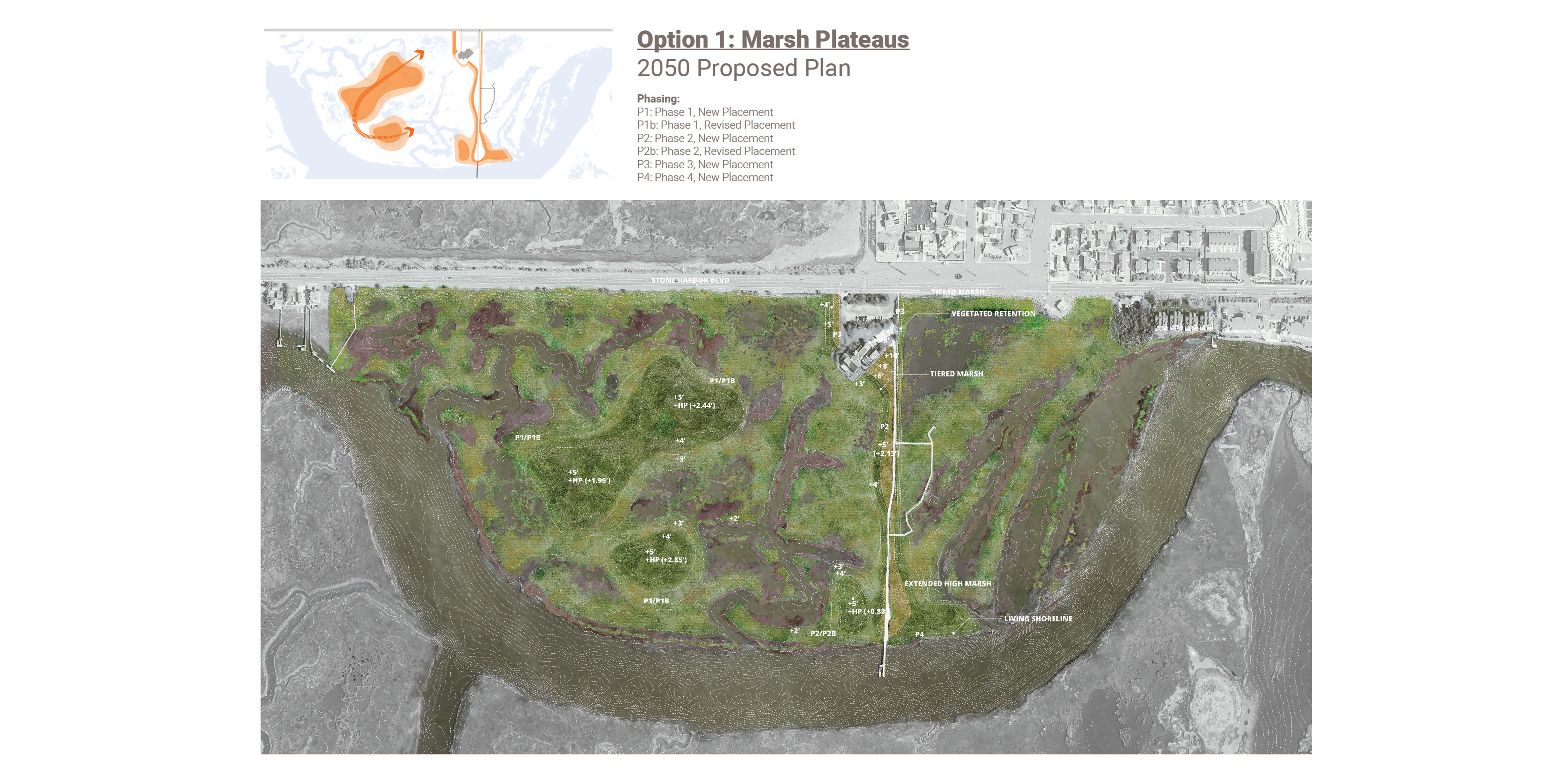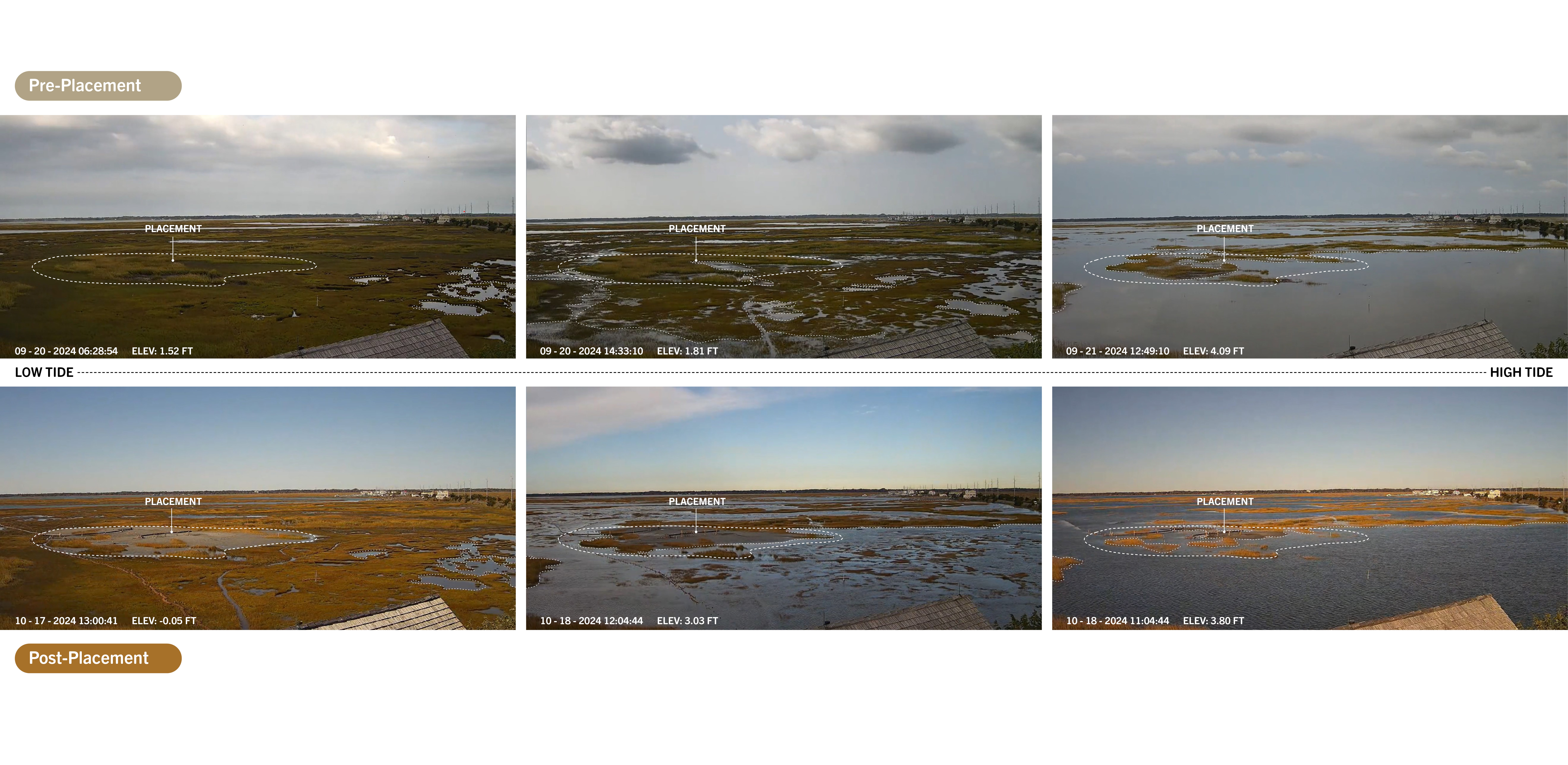Jenkins Sound Resiliency Plan
The EMLab is working with The Wetlands Institute (TWI) and New Jersey Department of Environmental Protection (NJDEP) to develop a multi-phase resiliency plan to help preserve and protect valuable marsh habitats in the greater Jenkins Sound area. The initial phase of this study involves data collection, cultural assessment, and simulation modeling for the bay area. Initial implementation plans include sediment placement and nature-based infrastructure improvements for the Scotch Bonnet Island area.
Partners for this phase of work also include the U.S. Army Corps of Engineers, Philadelphia District.
Led By: Keith VanDerSys and Sean Burkholder
Sediment Placement Monitoring
This timelapse shows the increased marshland elevation produced by the placement of dredged material at high tide. Adequate elevation is essential for the survival of marsh grasses and the wildlife habitats that they provide. The EMLab team will be monitoring the impact of the placement through collecting multi-spectral imagery over the next 3 years.



